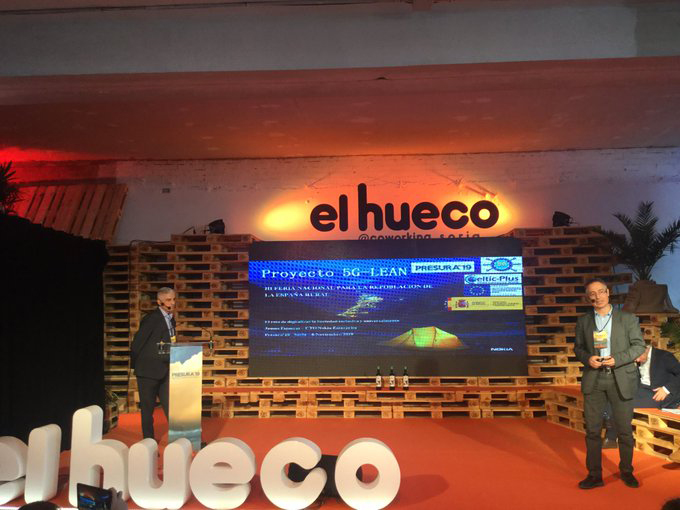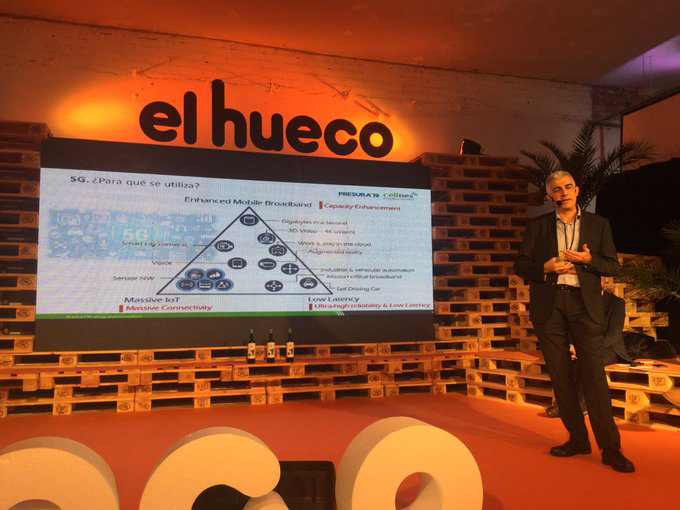Trends
Trends
DEC
02
2019
Technology
5G-Lean, for inclusive connectivity
The Lean concept, applied to the industrial and commercial segment, is based on seeking maximum possible satisfaction for an increasingly large group of consumers using the smallest amount of resources. The key therefore lies in efficiency, a factor to which simplicity and flexibility have recently been added. It means producing better, cheaper and for the greatest number of people. This concept also can – and should – be applied to the telecommunications sector in this era of digital transformation.
In the run-up to the definitive roll-out of 5G technology, the industry has set itself the challenge of resolving one of the shortcomings of the previous models (4G, 3G…): bringing connectivity to all urban centres and doing this with a smaller than expected investment. Based on this premise, Cellnex Telecom, Nokia and Quobis, in cooperation with MásMóvil, have developed the 5G-Lean project.
Driven by the goal of making digital transformation and the 5G revolution inclusive phenomena, the 5G-Lean project is aiming to bring connectivity to rural areas. The system, which was unveiled in the town of Matanza de Soria (Soria), uses a simpler, more lightweight and economical telecommunications infrastructure. To achieve this, it uses state-of-the-art antennas to provide service efficiently to areas of special interest with a model that is easy to install and to roll out.
5G-Lean makes use of the concept of a shared or neutral host (or server) valid for all operators. In future, “telecos” should reconsider whether it is feasible for each one to have its own infrastructure. The sharing model cuts costs, freeing up capital for investment in services with greater added value and is more efficient. And, more importantly, it benefits the entire population of the rural areas (the so-called “emptied Spain”) allowing them to also enjoy the advantages of 5G.
One of the greatest benefits of implementation is the advantage it provides to entrepreneurs in rural Spain. Access to faster connectivity has a dynamic and structuring effect on the territory. The 5G-Lean project is a joint initiative led by Cellnex, Nokia and Quobis with the support of the Ministry of Industry, Tourism and Commerce (through the AEESD programme, with file number TSI 102102 2017 2).
Manuel Cañete
Cellnex Innovation Project Manager
The Lean concept, applied to the industrial and commercial segment, is based on seeking maximum possible satisfaction for an increasingly large group of consumers using the smallest amount of resources. The key therefore lies in efficiency, a factor to which simplicity and flexibility have recently been added. It means producing better, cheaper and for the greatest number of people. This concept also can – and should – be applied to the telecommunications sector in this era of digital transformation.
In the run-up to the definitive roll-out of 5G technology, the industry has set itself the challenge of resolving one of the shortcomings of the previous models (4G, 3G…): bringing connectivity to all urban centres and doing this with a smaller than expected investment. Based on this premise, Cellnex Telecom, Nokia and Quobis, in cooperation with MásMóvil, have developed the 5G-Lean project.
Driven by the goal of making digital transformation and the 5G revolution inclusive phenomena, the 5G-Lean project is aiming to bring connectivity to rural areas. The system, which was unveiled in the town of Matanza de Soria (Soria), uses a simpler, more lightweight and economical telecommunications infrastructure. To achieve this, it uses state-of-the-art antennas to provide service efficiently to areas of special interest with a model that is easy to install and to roll out.
5G-Lean makes use of the concept of a shared or neutral host (or server) valid for all operators. In future, “telecos” should reconsider whether it is feasible for each one to have its own infrastructure. The sharing model cuts costs, freeing up capital for investment in services with greater added value and is more efficient. And, more importantly, it benefits the entire population of the rural areas (the so-called “emptied Spain”) allowing them to also enjoy the advantages of 5G.
One of the greatest benefits of implementation is the advantage it provides to entrepreneurs in rural Spain. Access to faster connectivity has a dynamic and structuring effect on the territory. The 5G-Lean project is a joint initiative led by Cellnex, Nokia and Quobis with the support of the Ministry of Industry, Tourism and Commerce (through the AEESD programme, with file number TSI 102102 2017 2).
Manuel Cañete
Cellnex Innovation Project Manager


















